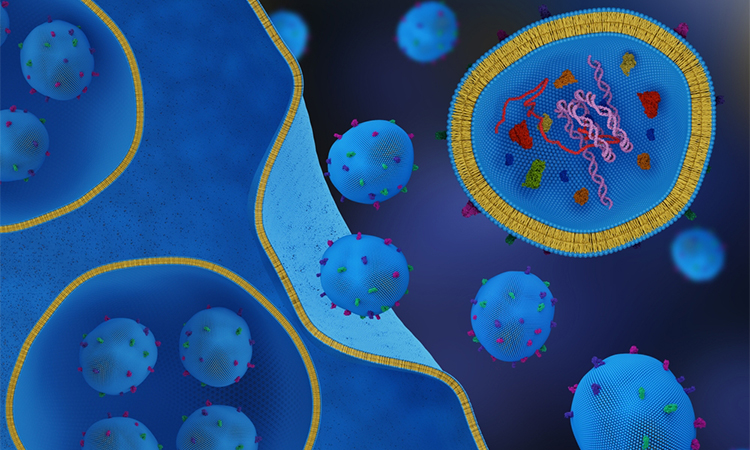Labelling approach enables examination of exosomes content
Posted: 14 September 2022 | Ria Kakkad (Drug Target Review) | No comments yet
The new labelling system includes a variant of ascorbate peroxidase which is fused to another protein that is known to seek out exosomes.


Scientists from Augusta University, US have recently published a study in the Journal of Extracellular Vesicles which describes a novel labelling technique to analyse the contents of exosomes from any specific cell type to better understand their role in illness.
Currently, the main method of examining exosomes is to isolate the exosomes, a laborious process that can create inconsistent results. In fact, it may isolate a different type of vesicle, basically biological compartments in our body of which exosomes are just one type. The researchers have developed an efficient method that enables just the contents of exosomes to be studies, and studies where they are.
Their labelling system includes a variant of APEX, or ascorbate peroxidase, which is fused to another protein that is known to seek out exosomes. APEX has a high affinity for biotin, a B vitamin, which attaches itself to nearby proteins, like the ones the developing exosome carries, labels them, and so helps identify them. Biotin also can pass through the cell membrane the exosomes are behind. One more protein, streptavidin, which binds naturally to biotin, enables them to purify and clearly identify the protein cargo as well as the RNA that will produce future proteins, with the help of analysis provided by mass spectrometry.
The new technique should ease development of databases of the usual content of a variety of different cell types that will enable comparative studies of what happens to their content in different disease states like the kidney injuries the researchers study, or cancer.
Their first use of the labelling system was in live kidney cells in culture. They now want to use it in an animal model of kidney disease. The scientific team says the labelling system additionally can help trace how exosome content changes over time and potentially how cells are responding to treatment in the case of disease.
Related topics
Disease Research
Related conditions
Kidney disease
Related organisations
Augusta University







